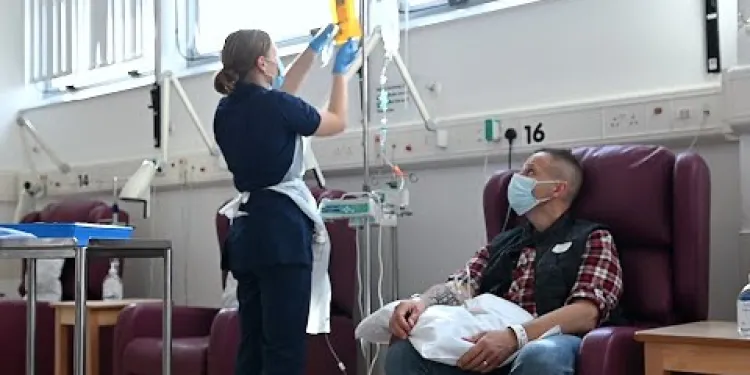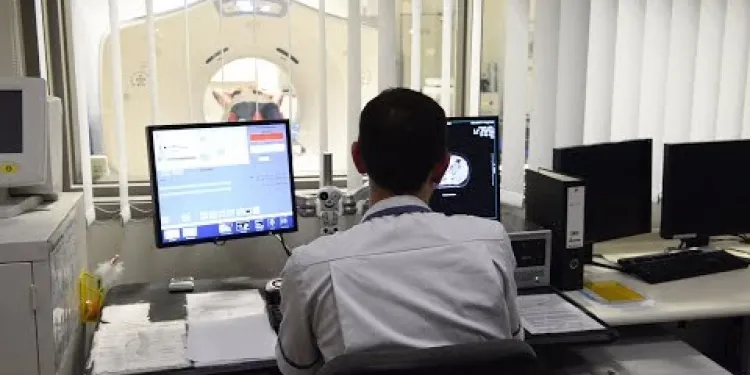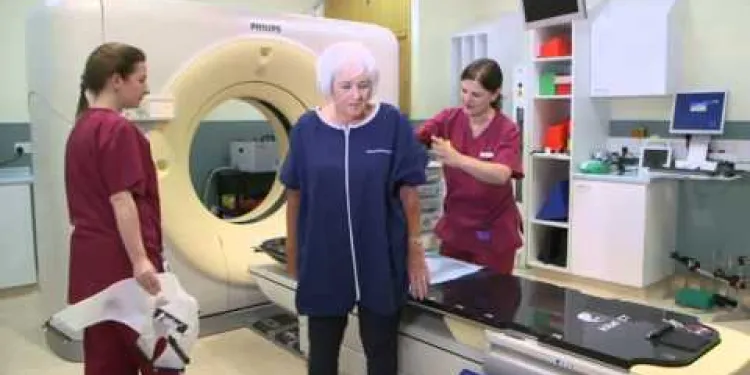
Find A Professional
More Items From Ergsy search
-

What are topical treatments for psoriasis?
Relevance: 100%
-

What treatment options are available for psoriasis?
Relevance: 96%
-

What is psoriasis?
Relevance: 83%
-

Is there a cure for psoriasis?
Relevance: 82%
-

What causes psoriasis?
Relevance: 80%
-

When should I see a doctor for psoriasis?
Relevance: 77%
-

How to treat psoriasis
Relevance: 76%
-

Can stress trigger psoriasis flare-ups?
Relevance: 76%
-

Psoriasis | NHS
Relevance: 73%
-

Can diet affect psoriasis?
Relevance: 72%
-

What are systemic medications for psoriasis?
Relevance: 70%
-

How is psoriasis diagnosed?
Relevance: 67%
-

What role do lifestyle changes play in managing psoriasis?
Relevance: 66%
-

What treatments are covered by the NHS dental service?
Relevance: 63%
-

Do NHS dentists cover cosmetic treatments?
Relevance: 62%
-

Having chemotherapy and other treatments in the Day Treatment Unit
Relevance: 62%
-

Treating scalp psoriasis
Relevance: 60%
-

Are there home remedies for psoriasis?
Relevance: 57%
-

What is the new treatment for hepatitis C like?
Relevance: 54%
-

Are there any extra charges for NHS dental treatments?
Relevance: 53%
-

Having radiotherapy for breast cancer - 3 Videos
Relevance: 52%
-

Fertility treatments on the up, but not via the NHS
Relevance: 52%
-

Cancer treatment: what happens during radiotherapy? | NHS
Relevance: 51%
-

Treating prostate cancer
Relevance: 50%
-

Can over-the-counter treatments help with psoriasis?
Relevance: 49%
-

Breakthrough Cancer Treatment Shows Promise for NHS Patients
Relevance: 49%
-

NHS Dental Charges Explained
Relevance: 46%
-

What is Radiotherapy, and its use in treatment for cancers?
Relevance: 45%
-

How often should I get Botox treatments?
Relevance: 44%
-

Why have my email account recovery options changed without my knowledge?
Relevance: 44%
-

Royal Berkshire NHS Foundation Trust: Radiotherapy for prostate cancer
Relevance: 44%
-

Are inhalers the only treatment for asthma?
Relevance: 43%
-

Can my child get braces on the NHS?
Relevance: 39%
-

Are chiropractic treatments safe?
Relevance: 39%
-

Radiotherapy to the Head and Neck: A Guide for patients and their carers
Relevance: 39%
-

Are all dental appointments free on the NHS?
Relevance: 38%
-

Eating disorders: treatment
Relevance: 37%
-

Can I get braces through the NHS?
Relevance: 37%
-

If you want NHS braces, watch this!
Relevance: 36%
-

Prostate cancer symptoms - detecting them early
Relevance: 36%
Understanding Psoriasis
Psoriasis is a chronic autoimmune condition characterized by the rapid growth of skin cells, leading to scaling on the skin’s surface. These scales are often accompanied by inflammation and redness. Managing psoriasis can be challenging, but various treatment options are available in the UK to help control symptoms and improve quality of life.
Topical Treatments
Topical therapies are often the first line of treatment for mild to moderate psoriasis. These include creams and ointments applied directly to the skin. Common topical treatments include corticosteroids (to reduce inflammation), vitamin D analogues (to slow skin cell growth), coal tar (to reduce scaling, inflammation, and itchiness), and dithranol (to reduce cell growth). These treatments can be effective but are often used under medical supervision to prevent side effects.
Phototherapy
Phototherapy or light therapy involves exposing the skin to ultraviolet (UV) light under medical supervision. UVB phototherapy and PUVA (psoralen and UVA) are two common methods. UVB therapy uses a special lamp to expose the skin to UVB rays, which can help reduce symptoms. PUVA involves taking a drug that increases sensitivity to light before UVA exposure. Phototherapy is typically reserved for moderate to severe psoriasis or when topical treatments are ineffective.
Systemic Treatments
For more severe cases, systemic treatments may be prescribed. These involve medications taken orally or by injection that work throughout the body, not just on the skin. Common systemic treatments include methotrexate, ciclosporin, and acitretin. These medications can have significant side effects and require close monitoring by a healthcare professional.
Biologic Therapies
Biologic therapies are a newer class of systemic treatment that target specific parts of the immune system to reduce inflammation. In the UK, biologics such as adalimumab, etanercept, infliximab, and secukinumab are used for moderate to severe psoriasis. These treatments are usually administered via injection and are particularly helpful for patients who do not respond to other treatments. Biologics can be expensive and typically require specialist prescription and oversight.
Lifestyle and Home Remedies
In addition to medical treatments, certain lifestyle changes can help manage psoriasis symptoms. These include maintaining a healthy diet, using moisturizing creams regularly to manage dryness, avoiding known triggers like stress or injury to the skin, and refraining from smoking and excessive alcohol consumption.
Conclusion
While there is no cure for psoriasis, a range of treatment options are available to alleviate symptoms and improve quality of life. It is important for patients in the UK to work closely with their healthcare providers to determine the most appropriate treatment plan. Managing psoriasis often involves a combination of therapies and lifestyle adjustments tailored to the individual's needs.
Understanding Psoriasis
Psoriasis is a condition that affects the skin. It is long-lasting and happens because the body's defenses attack the skin by mistake. This makes skin cells grow too quickly, leading to patches or scales on the skin. These patches can be red and sore. There are different ways to treat psoriasis in the UK. These treatments help to manage the symptoms and make life better for those with psoriasis.
Topical Treatments
Topical treatments are creams or ointments put directly on the skin. They are usually the first choice for treating mild to moderate psoriasis. Some common types are: - Corticosteroids: They help reduce redness and swelling. - Vitamin D creams: They slow down the fast growth of skin cells. - Coal Tar: It helps with itching and scales. - Dithranol: It slows down skin cell growth. People use these treatments with guidance from a doctor, so they use them safely.
Phototherapy
Phototherapy is also called light therapy. It uses special light to help the skin. A doctor usually gives phototherapy to people whose psoriasis is moderate or severe. Two main types of phototherapy are: - UVB therapy: It uses a special lamp with UVB light. - PUVA: You take a medicine to make your skin sensitive to light, and then it is exposed to UVA light. Phototherapy can work when creams don’t help enough.
Systemic Treatments
Systemic treatments are stronger treatments for severe psoriasis. They are medicines taken by mouth or by injection. These medicines treat psoriasis all over the body, not just on the skin. Common ones are: - Methotrexate - Ciclosporin - Acitretin They can have strong side effects, so doctors watch patients closely.
Biologic Therapies
Biologic therapies are newer and treat the immune system. They help with moderate to severe psoriasis. Some biologics in the UK are: - Adalimumab - Etanercept - Infliximab - Secukinumab These treatments usually come as injections. They are used when other treatments aren’t enough and are prescribed by specialists due to their cost.
Lifestyle and Home Remedies
Apart from medical treatments, you can also make lifestyle changes to help manage psoriasis. Helpful actions are: - Eating healthy foods - Using moisturizing creams to ease dry skin - Avoiding things that make symptoms worse, like stress or skin injuries - Not smoking and cutting down on alcohol These steps can support medical treatments.
Conclusion
Psoriasis cannot be cured, but there are many ways to ease the symptoms and improve how you feel. It is important to work with your doctor in the UK to find the best treatment plan. A good plan usually includes a mix of medical treatments and lifestyle changes that suit you personally.
Frequently Asked Questions
What are the most common topical treatments for psoriasis?
Common topical treatments include corticosteroids, vitamin D analogues, salicylic acid, coal tar, and topical retinoids.
Can light therapy help in treating psoriasis?
Yes, phototherapy, including UVA and UVB light treatments, can help in reducing symptoms of psoriasis.
What are systemic medications and how do they work for psoriasis?
Systemic medications are drugs taken orally or by injection that work throughout the body to reduce inflammation and slow down skin cell production. Examples include methotrexate, cyclosporine, and acitretin.
Are there biologic treatments available for psoriasis?
Yes, biologics are a newer form of treatment that target specific parts of the immune system. Examples include etanercept, infliximab, and ustekinumab.
How do vitamin D analogues help in treating psoriasis?
Vitamin D analogues, such as calcipotriol, help to slow skin cell growth and can reduce scaling and swelling.
What role do corticosteroids play in psoriasis treatment?
Corticosteroids help to reduce inflammation and are commonly used as a first-line treatment for mild to moderate psoriasis.
Is there a lifestyle change that can help manage psoriasis symptoms?
Yes, managing stress, maintaining a healthy weight, avoiding smoking, and reducing alcohol intake can help manage symptoms.
Are there over-the-counter treatments available for psoriasis?
Yes, over-the-counter treatments include moisturizers, anti-itch creams, and dandruff shampoos containing coal tar or salicylic acid.
How effective is coal tar in treating psoriasis?
Coal tar can reduce itching, scaling, and inflammation, though it might not be as effective as other treatments for severe cases.
Can diet influence psoriasis symptoms?
While no specific diet is proven to treat psoriasis, a healthy diet can support the immune system and reduce inflammation.
What is the role of salicylic acid in psoriasis treatment?
Salicylic acid helps to remove scales and smooth the skin, making other topical treatments more effective.
How do systemic retinoids help in managing psoriasis?
Systemic retinoids, like acitretin, work by slowing skin cell growth and reducing inflammation.
Is managing stress important for psoriasis treatment?
Yes, stress is a known trigger for psoriasis flare-ups, so stress management techniques can be beneficial.
Can alternative therapies be used for psoriasis?
Some people find relief with alternative therapies like acupuncture, fish oil supplements, or aloe vera, but these should complement conventional treatments.
What are the potential side effects of biologics for psoriasis?
Biologics can increase the risk of infections, as they suppress parts of the immune system. Other side effects vary by medication.
What is the importance of moisturizers in psoriasis treatment?
Moisturizers can help reduce dryness, scaling, itching, and redness, complementing other treatments.
Are there any new treatment developments for psoriasis?
Research is ongoing, and new treatments such as JAK inhibitors and more specific biologics are being developed.
How does phototherapy treat psoriasis?
Phototherapy uses ultraviolet light to slow down skin cell growth and reduce inflammation and scaling.
Can psoriasis be completely cured?
Currently, there is no cure for psoriasis, but various treatments can effectively manage and reduce symptoms.
What role do retinoids play in topical psoriasis treatment?
Topical retinoids help to normalize DNA activity in skin cells, reducing psoriasis symptoms such as scaling and skin thickness.
What creams or ointments are often used for psoriasis?
Psoriasis is a skin condition that can cause red, scaly patches. Here are some creams and ointments that help:
- Moisturizers: These keep your skin soft and stop it from getting too dry.
- Steroid creams: These help reduce swelling and redness.
- Vitamin D creams: These help slow down skin growth.
- Coal tar: This can help make your skin less itchy and slow down cell growth.
Always talk to a doctor before using new treatments. They can help you choose what's best for you. You can also use apps that remind you when to use your treatments.
There are creams and lotions that can help the skin. Some of these are:
- Special creams to reduce swelling
- Lotions with vitamin D
- Creams with salicylic acid
- Coal tar products
- Topical retinoids, which help the skin grow better
It might help to ask a doctor or nurse which is best for you.
Can light therapy help with psoriasis?
Psoriasis is a skin problem. It makes your skin red and itchy.
Light therapy uses special light to help the skin. It can make the red and itchy patches better.
If you have psoriasis, you can talk to a doctor. They can tell you if light therapy is good for you.
Some people use tools like lamps at home. But it's important to use them the right way, so ask a doctor first.
Yes, light therapy can help make psoriasis better. This uses special lights called UVA and UVB.
What are systemic medications and how do they help with psoriasis?
Systemic medications are strong medicines that help the whole body. They can help with a skin problem called psoriasis. Psoriasis makes your skin red and itchy.
These medicines work from the inside. They go all through the body to help stop the skin from being so red and itchy. You can take these medicines as pills or sometimes doctors give them as shots.
Using simple tools like pill organizers can help remember when to take them. It's important to talk to a doctor about taking these medicines.
Some medicines work inside your whole body. You take them by swallowing or getting a shot. These medicines help make swelling go down and slow how fast skin cells grow. Some examples of these medicines are methotrexate, cyclosporine, and acitretin.
Can medicine help with psoriasis?
Yes, biologics are a new type of medicine. They help by targeting certain parts of the body's defense system. Some examples of these medicines are etanercept, infliximab, and ustekinumab.
How do vitamin D medicines help with psoriasis?
Vitamin D is like a special helper for your skin. There are different kinds, like calcipotriol. These can make skin problems better by helping skin cells grow slower. They can also help make the skin less flaky and swollen.
Here are some things that might help you understand this better:
- Pictures: Look at pictures of skin to see what happens.
- Videos: Watch videos that explain how vitamin D helps.
How do corticosteroids help treat psoriasis?
Corticosteroids are medicines. They help with psoriasis skin problems. Corticosteroids can make: - Skin less red and itchy - Swelling go down Doctors can give corticosteroids as creams or pills. Here are some ways to help remember to use them: - Set a daily reminder - Ask someone to help remind you Always follow the doctor’s instructions.Corticosteroids are special medicines that help to make swelling go down. Doctors often use them first to treat mild to moderate psoriasis, which is a skin problem.
Can changing how you live help with psoriasis?
Psoriasis is a skin problem. It makes your skin itchy and red. You can try changing how you live to feel better. Here are some ideas:
- Eat Healthy: Eat fruits, vegetables, and whole grains.
- Exercise: Try to move your body every day, like walking or playing.
- Stay Calm: Find ways to relax, like deep breathing or quiet time.
- Sleep Well: Go to bed at the same time every night.
- No Smoking: It's best not to smoke.
Ask a grown-up or a doctor for help if you want to learn more.
Yes, doing things like staying calm, keeping a healthy weight, not smoking, and drinking less alcohol can help feel better.
Can I buy medicine for psoriasis without a doctor's note?
Yes, you can find some treatments for psoriasis at the store.
Here are some tips:
- Look for creams and lotions that help with itching and redness.
- Ask the pharmacist if you need help choosing a product.
- Read the instructions on the package carefully.
- If the treatment doesn't help, ask a doctor for advice.
Using a reminder app or alarm can help you remember to use the treatment.
Yes, you can buy things at the store to help. You can get:
- Lotions to keep your skin soft.
- Creams to stop itching.
- Special shampoos for dandruff with coal tar or salicylic acid.
Tools like picture guides or reading apps can also help you use these things.
Does coal tar help with psoriasis?
Psoriasis is a skin problem that can make your skin red and itchy. Coal tar is a type of medicine that can help. Here is what you need to know:
- Coal tar can make your skin feel better.
- It helps reduce itching and redness.
- Doctors may suggest using a special cream or shampoo with coal tar.
- Make sure to follow the instructions from your doctor.
- If you have questions, ask your doctor or nurse for help.
Some tools or techniques that can help you learn more:
- Ask someone to read with you.
- Use pictures to understand better.
- Watch videos about psoriasis.
Coal tar can help stop itching. It can also help with flaking and swelling. But for very bad cases, other treatments might work better.
Does what you eat affect psoriasis?
Psoriasis is a skin condition. It can make your skin itchy and red.
Some people with psoriasis wonder if eating different foods can help.
Here are some easy tips:
- Eat lots of fruits and vegetables. They are good for your skin.
- Try to eat less sugar and fatty foods.
- Keep track of what you eat and see if it helps your skin feel better.
- Ask a doctor or a dietitian for advice. They can help you choose the best foods.
Use tools like picture cards to remember the tips.
Friends or family can also help you with your food choices.
Eating healthy food is good for your body. It helps keep your immune system strong and can lower swelling and soreness in your skin.
How does salicylic acid help treat psoriasis?
Salicylic acid helps get rid of rough skin. It makes the skin smooth, so other skin treatments work better.
How do medicine called retinoids help with psoriasis?
Psoriasis is a skin problem that makes red, flaky patches. Retinoids are a type of medicine doctors use to help. They make the skin look better by slowing down skin growth.
Here's how they help:
- They stop skin cells from growing too fast.
- They make the skin less red and sore.
If you have psoriasis, it's good to talk to a doctor. They can tell you if retinoids are right for you. Using a calendar or phone reminders can help you remember to take your medicine.
Systemic retinoids, like acitretin, help by making skin cells grow slower and by reducing swelling.
Is it important to manage stress to help with psoriasis?
Yes, it is important to manage stress to help with psoriasis.
When you feel stressed, your skin can get worse.
You can try relaxing by:
- Taking deep breaths
- Going for a walk
- Listening to music
These things can help you feel better. If you need more help, you can talk to a doctor or a friend.
Yes, stress can make psoriasis worse, so it helps to find ways to relax and feel calm.
Can different treatments help with psoriasis?
Psoriasis is a skin problem that can make your skin red and itchy. There are many ways to help treat it.
Some people try different kinds of treatments, like using special diets, herbs, or relaxation exercises.
If you have psoriasis, it is important to talk to your doctor about what might help you.
You can use tools like easy-to-read books or work with a helper to understand what makes you feel better.
Some people feel better when they use other types of help like acupuncture, fish oil pills, or aloe vera. But you should use these along with your normal medicine from the doctor.
If reading is hard, try using tools like audiobooks or ask someone to read with you.
What can happen from taking medicine for psoriasis?
When you take medicine for psoriasis, sometimes your body might not like it. Here are some things that might happen:
- You might feel tired.
- You could get a headache.
- Your tummy might feel upset.
- You could get an itch or rash on your skin.
If you have any of these feelings, tell an adult or doctor. They can help you feel better.
Tools like picture cards or easy-reading books can help you understand more about your medicine and psoriasis.
Biologics are medicines. They can make it easier to get sick because they weaken the immune system. Different biologics can cause different problems.
Why are moisturizers important for treating psoriasis?
Psoriasis is a skin problem that makes your skin dry and itchy. Using moisturizers can help a lot.
How do moisturizers help?
- They keep your skin soft and smooth.
- They stop your skin from getting too dry.
- They can make itching less annoying.
What can you do?
- Put moisturizer on your skin every day, especially after a bath or shower.
- Use special creams that your doctor or nurse suggests.
Moisturizers can help make your skin feel better. They stop skin from being dry, itchy, or red. They also help with other skin treatments.
Are there new ways to help with psoriasis?
Yes, there are always new ideas to help treat psoriasis. Psoriasis is a skin problem that can make your skin itchy and red.
Doctors and scientists work hard to find better treatments. This can include new creams, pills, or other therapies.
If you or someone you know has psoriasis, talk to a doctor. They can tell you about the latest treatments.
Using simple language helps everyone understand better. If you have trouble reading, ask someone to read with you.
You can also use tools like screen readers that read words aloud.
Scientists are working hard to find new medicines. These new medicines are called JAK inhibitors and biologics.
How can light help treat psoriasis?
Psoriasis is a skin problem that makes your skin red and itchy. Light treatment, called phototherapy, can help make it better.
Doctors use special lights on your skin. This light can slow down the skin problem. It can stop your skin from getting red and itchy.
If you have psoriasis, talk to a doctor. They can tell you if light treatment is a good choice for you.
You can also ask someone you trust to help you understand this treatment. Writing your questions down and using pictures can make it easier.
Light therapy uses a special kind of light to help skin problems. It slows down skin growth and can help with redness and scaling.
Can psoriasis be completely cured?
Psoriasis is a skin illness that makes red, itchy patches. It cannot be completely cured right now. But, treatments and medicine can help. They can make the skin better and stop it from getting worse.
If you have psoriasis, a doctor can help you. They can suggest creams, pills, or light therapy to make you feel better.
Remember to take care of your skin. Put on moisturizers to keep it from becoming dry. Try to avoid stress because it might make psoriasis worse.
There are also support groups online. You can talk to others who have psoriasis. They can share tips and make you feel supported.
Right now, there is no way to make psoriasis go away forever. But, there are different treatments that can help make it feel better.
How do retinoids help with skin treatment for psoriasis?
Retinoids are medicines that help the skin. They can make the skin look and feel better. Supportive tools like using a timer to remember when to use the medicine or asking for help from an adult can be helpful.
Topical retinoids are creams or gels that you put on your skin. They help fix how skin cells work. This can make psoriasis better. Psoriasis is when your skin gets thick and scaly. Retinoids can help make your skin smooth again.
If you have trouble reading, try using a ruler or your finger to help you follow the words. You could also ask someone to read with you.
Useful Links
- Ergsy carfully checks the information in the videos we provide here.
- Videos shown by Youtube after a video has completed, have NOT been reviewed by ERGSY.
- To view, click the arrow in centre of video.
- Most of the videos you find here will have subtitles and/or closed captions available.
- You may need to turn these on, and choose your preferred language.
- Go to the video you'd like to watch.
- If closed captions (CC) are available, settings will be visible on the bottom right of the video player.
- To turn on Captions, click settings .
- To turn off Captions, click settings again.
More Items From Ergsy search
-

What are topical treatments for psoriasis?
Relevance: 100%
-

What treatment options are available for psoriasis?
Relevance: 96%
-

What is psoriasis?
Relevance: 83%
-

Is there a cure for psoriasis?
Relevance: 82%
-

What causes psoriasis?
Relevance: 80%
-

When should I see a doctor for psoriasis?
Relevance: 77%
-

How to treat psoriasis
Relevance: 76%
-

Can stress trigger psoriasis flare-ups?
Relevance: 76%
-

Psoriasis | NHS
Relevance: 73%
-

Can diet affect psoriasis?
Relevance: 72%
-

What are systemic medications for psoriasis?
Relevance: 70%
-

How is psoriasis diagnosed?
Relevance: 67%
-

What role do lifestyle changes play in managing psoriasis?
Relevance: 66%
-

What treatments are covered by the NHS dental service?
Relevance: 63%
-

Do NHS dentists cover cosmetic treatments?
Relevance: 62%
-

Having chemotherapy and other treatments in the Day Treatment Unit
Relevance: 62%
-

Treating scalp psoriasis
Relevance: 60%
-

Are there home remedies for psoriasis?
Relevance: 57%
-

What is the new treatment for hepatitis C like?
Relevance: 54%
-

Are there any extra charges for NHS dental treatments?
Relevance: 53%
-

Having radiotherapy for breast cancer - 3 Videos
Relevance: 52%
-

Fertility treatments on the up, but not via the NHS
Relevance: 52%
-

Cancer treatment: what happens during radiotherapy? | NHS
Relevance: 51%
-

Treating prostate cancer
Relevance: 50%
-

Can over-the-counter treatments help with psoriasis?
Relevance: 49%
-

Breakthrough Cancer Treatment Shows Promise for NHS Patients
Relevance: 49%
-

NHS Dental Charges Explained
Relevance: 46%
-

What is Radiotherapy, and its use in treatment for cancers?
Relevance: 45%
-

How often should I get Botox treatments?
Relevance: 44%
-

Why have my email account recovery options changed without my knowledge?
Relevance: 44%
-

Royal Berkshire NHS Foundation Trust: Radiotherapy for prostate cancer
Relevance: 44%
-

Are inhalers the only treatment for asthma?
Relevance: 43%
-

Can my child get braces on the NHS?
Relevance: 39%
-

Are chiropractic treatments safe?
Relevance: 39%
-

Radiotherapy to the Head and Neck: A Guide for patients and their carers
Relevance: 39%
-

Are all dental appointments free on the NHS?
Relevance: 38%
-

Eating disorders: treatment
Relevance: 37%
-

Can I get braces through the NHS?
Relevance: 37%
-

If you want NHS braces, watch this!
Relevance: 36%
-

Prostate cancer symptoms - detecting them early
Relevance: 36%